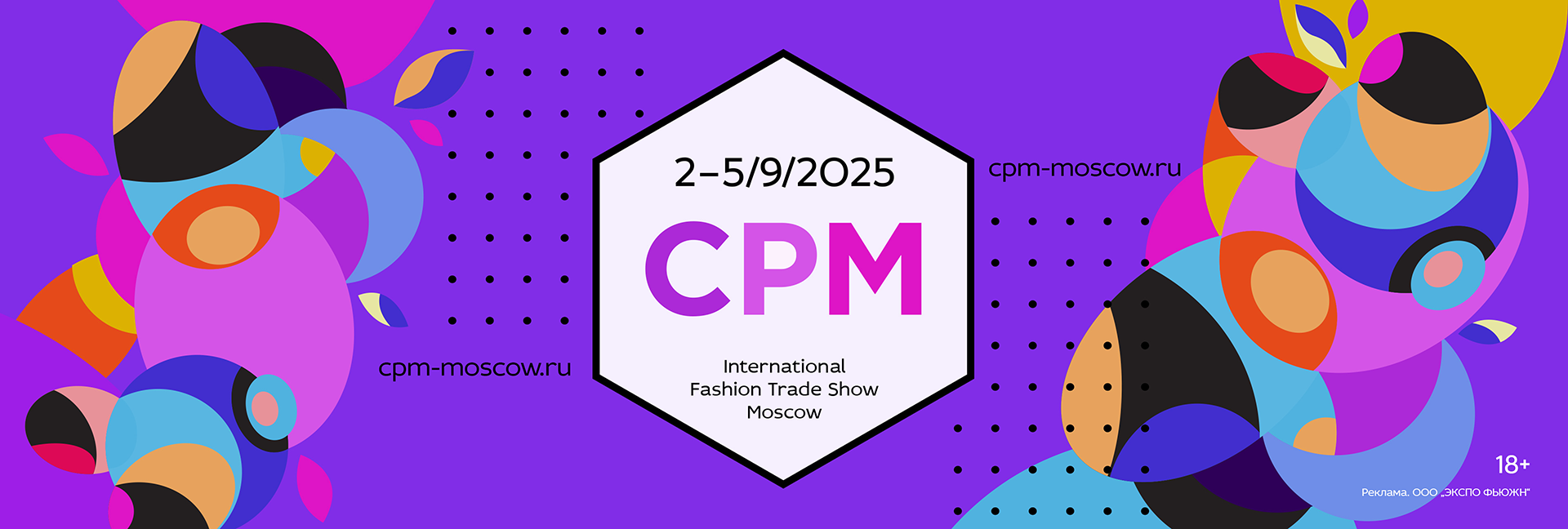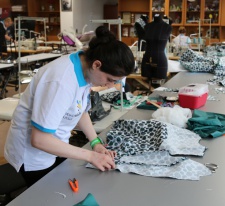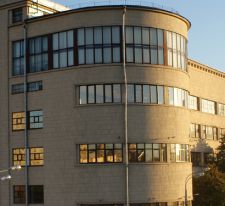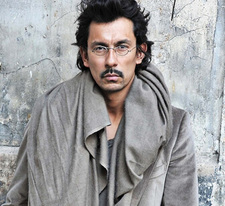College of Technology No. 24: reach out to...
Since the collapse of the planned economy of the USSR, our people have got into the habit of scolding everything. Our education, our industry, our healthcare. However, if you delve into the topic, it becomes clear that in fact there are educational organizations worthy of imitation these days.
The director of the Technological College No. 24 of Moscow, Irina Vasilyevna Sudibor, talks about how vocational training in light industry is now built.
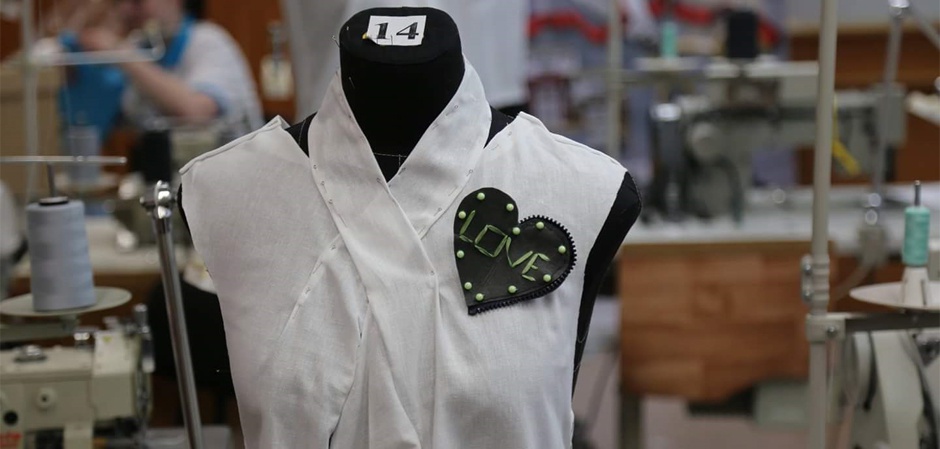
Irina Vasilyevna, tell us about the history of the college.
Our college is based on several educational institutions. One of them is Vocational School No. 125, later renamed the Professional Lyceum of Knitted design No. 325, founded back in 1960. Therefore, we believe that our college is more than 55 years old. This school was the main one for the knitting factory "Red Dawn", the association "Upper Knitwear" and the hosiery factory named after Bauman. Other educational institutions are Lyceum No. 307, where tailors and clothing designers were trained, and vocational Lyceum No. 342, where tailors and seamstresses were trained mainly from people with disabilities. Out of these three main vocational schools, our college was established in 2004, where we retained all the specialties. In 2008, with the help of the state program "Working Personnel", we managed to install the latest knitting equipment - German Stoll knitting machines and Italian Busy Giovanni hosiery machines. So now we can proudly state that we have the widest fleet of equipment, and when foreign delegations come to us, they do not believe their eyes and call our workshops modern production.
Five years ago, we moved to the status of an autonomous educational institution. This has given us serious opportunities to expand the range of specialties that we teach students. Today we earn 43% of the funds needed for educational activities on our own: we provide services to the population and light industry enterprises, including sewing and knitting products to order. We produce school, cadet, sports and work uniforms. Both employees and students work in our workshops, so we can add the most necessary specialties on the market. So, the most popular department is Computer Science and Computer Engineering, where, among other things, they teach Saito structure. We teach future hairdressers and makeup artists. And recently opened grooming training (grooming and pet care).
It turns out that your educational institution is better equipped than some universities. How did you manage it?
– Not without the help of the state, of course. In 2013, the Mayor of Moscow, S.S. Sobyanin, allocated additional funds for the development of the material and technical base to support autonomous educational organizations, and we again decided to invest in equipment. We bought modern machines for working with leather and fur, machines for direct printing on fabric, new embroidery and cutting equipment. We have purchased the latest software for the automatic design of Lectra, Grafis and Assol. And we train students to work with these programs. Although, of course, not from the first days. We are clearly convinced that first we need to master the design on paper and fabric, and then move on to computer technology.
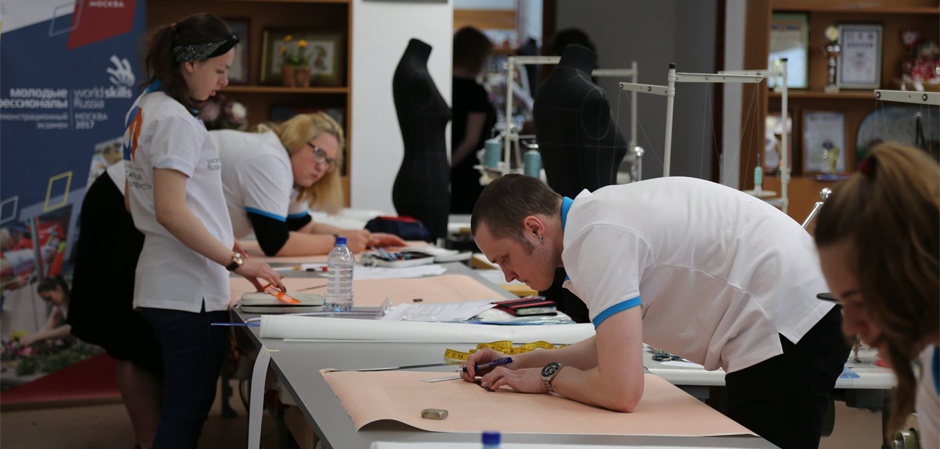
Seeing such equipment, future students are probably lining up?
– We strive for this. In the meantime, we have to surprise applicants and their parents with stories that there are light industry enterprises in Russia, in Moscow, and in the Moscow region. And not some underground workshops of counterfeit products, stories about which they see in the news, but full-fledged successful enterprises where it is quite possible to get a decent salary.
For the 2017/18 academic year, 500 training places have been created in Moscow educational institutions of light industry. We can accept 75 people for training in the specialty "Designing, modeling and technology of sewing products" (50 of them on the basis of 9 classes) and 50 people in the specialty "Tailor" (25 of them on the basis of 9 classes). Enrollment is conducted through the Moscow website of public services. mos.ru . A school certificate is required for admission, and an entrance exam on a special nozzle is provided for applicants for design specialties.
– Who is currently studying in college?
– I think it's worth noting that these are not just students. As part of additional education, schoolchildren are engaged in our school, attending technical creativity circles and studios of various directions both in our premises and in the schools with which we work. In addition, about 800 people annually undergo professional retraining programs. These are adults who have decided to acquire skills in new specialties in the evenings or on weekends. The tailor's profession is in the greatest demand.
Irina Vasilyevna, the international movement WorldSkills is gaining popularity now. How is this developing in your educational institution?
Professional standards that employers are guided by are very important to us. We have been participating in the WorldSkills movement for several years, where representatives of working professions compete. This year, on the basis of our college, a demonstration exam in the specialty "Fashion Technology" was organized for three colleges in Moscow. And although officially we could not yet allow representatives of the future employers of our graduates to attend it, their desire was so hot that we made concessions and allowed them to attend. 75% of our graduates pass this exam, which takes place as a performance at an international championship. The participants perform a full cycle of creating sewing products for three days, from drawing a sketch and building structures to cutting and sewing. And when we started preparing for this event, it became clear that we should train universal masters who will be able to complete the whole process from start to finish. Therefore, we use an integrated approach to learning. Our graduates can do everything and will not sit and wait for buttons or buttons to be brought to them. The time of narrow specialists has passed.
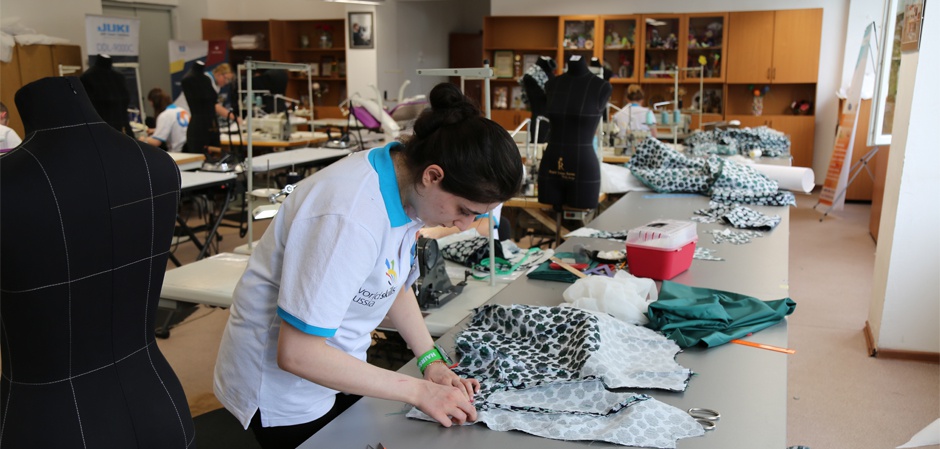
Do your students take part in competitions? After all, it is extremely important to develop and maintain the skills you have listed.
Yes, of course. We also have our own competition – Moscow. Fashion. Look. He is more than five years old. We conceived it as an internal one, but it quickly became known, so we began to invite participants from other educational institutions, other cities and even countries. This is not the usual representation of the five bows. Our contestants show the same image in different categories. As a result, students of sewing specialties and future hairdressers and make-up artists work together on the image. And this is very important both for training and for future professional activity. In addition, the jury consists not of teachers, but real industry figures - famous hairdressers, stylists, designers, creators of their brands. And they can invite the contestants to their work.
– That is, you help with employment?
– This is our direct responsibility. We are a budget institution and we report for each graduate. About 5-10% of them continue their studies at universities on a full-time basis, and the rest are most often already employed by the time of graduation. Today, the prestige of working specialties is growing day by day. For example, for hairdressing specialties, we have a competition of 10 people per place. Those who do not pass on budget places, study for a fee. Parents are ready to invest money in the vocational training of their children.
– Well, what do you still lack? If you had a magic wand, what would you ask for college?
– A more serious attitude on the part of future employers. Often, without even delving into the situation, at numerous meetings and round tables they complain that we do not train workers for light industry. And when they find out what they are cooking, they indiscriminately declare that it is bad. In fact, each enterprise, of course, has its own specifics, while not every production has such a fleet of equipment as we have. But we are ready to fulfill the orders of specific companies. They just need to choose the student who is potentially suitable for work in their production, and guide him during the entire training. As a result, you can get a ready
-made specialist, who will no longer have to be retrained.
Interviewer: Tamara Protasova
